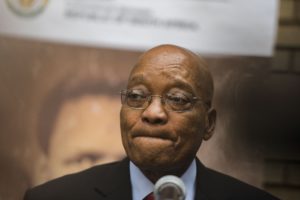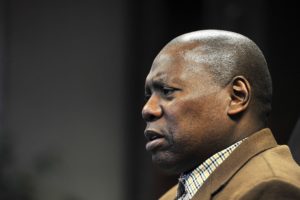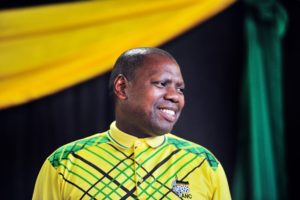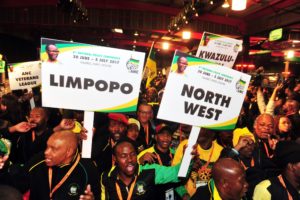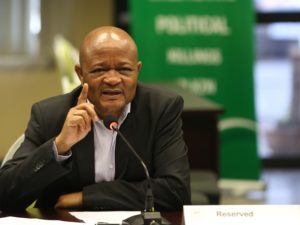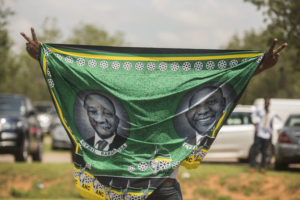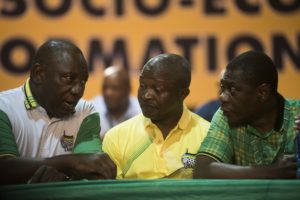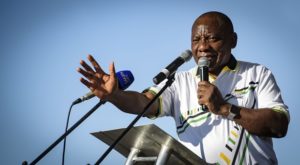The ANC needs a unifying leader
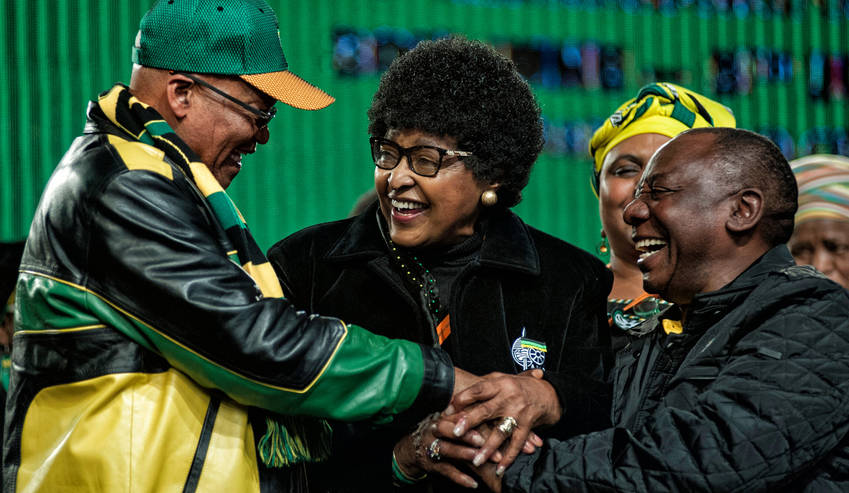
“It is only as a united force that we can move forward. It is as a united people that we shall be victorious” – OR Tambo
Unity is a critically important concept in the ANC that has in recent times become elusive. In the run-up to the elective conference, it is a concept that is being actively pursued and preached. We have seen high-level engagements to foster unity. We need more engagements and dialogues among all candidates, regions and branches, so that we can get to the elective conference as a united and cohesive force.
If one is to endeavour to unify the ANC, there must be an accurate understanding of what unity actually means. The common definition in its most simplistic form is that unity means oneness and togetherness. There are various means to be powerful and, undoubtedly, unity is one of them. Therefore, it is said that unity is strength.
This becomes even more apt in the context of the current political climate in the ANC when we are so divided, and it is exactly this disunity that has weakened us as a party.
It is clear that all members of the ANC must take collective responsibility in furthering efforts to breathe unity into the ANC. This goes further than proclamation, but to actual implementation. As the conference draws closer, many will sound the call for unity, but the authenticity attached to such a call is what matters the most. Many political campaigns have emerged as the conference beckons; election candidates have appeared charismatic, advancing idealistic views and giving speeches that inspire the masses.
At its very core, the determination of an excellent leader transcends all of these tactics and reveals that the primary skill, focus and determination of a suitable candidate to lead the ANC is their ability to enable and promote the development of the people they lead.
We can all preach unity – that’s the easy part – however, the commitment to see the quest for unity in the party through is the true test.
As Vladimir Lenin wrote in 1914: “Nothing is easier than to write the word unity in yard-long letters, to promise it and to proclaim oneself an advocate of unity.”
While we have been successful in building a democratic society entrenching freedom and equality, the reality is that unity in the organisation has been more proclaimed than lived.
Unity is a fundamental concept in politics throughout the world – it has been the premise upon which many struggles were advanced. No political party can serve the interests of people if it is fragmented and divided. We cannot serve the people if we are consumed by political ambitions and serving our own interests. We cannot serve the interests of the people if we display a lack of discipline within the structures of the ANC. We need to start fighting together to sustain the ideals of freedom, justice, equality, transparency and unity.
Through the course of history, perhaps the ANC’s most important achievement was its ability to unite the people of this country in the pursuit of the greater interests of our nation.
There is a dire need to realise the value of unity and how this manifests in our relationships. Unity is strong and powerful and, by our united effort, we can easily achieve what we individually cannot.
In the ANC, if we are united by our shared values and goals, we can move South Africa forward by synchronising our efforts to create sustaining partnerships that will enhance the future of the country. For the first time in the history of the organisation, the strength of our alliance partnerships is in question. There must be conscious and deliberate efforts focused on restoring and repairing these partnerships.
In the spirit of OR Tambo, let us unite with our members and our alliance partners – the SA Communist Party (SACP), Cosatu and the SA National Civic Organisation – and other mass democratic formations.
Unity is inclusive and it frees us from the divisiveness of prejudice. Another essential component of unity is that we see our commonality of interests without devaluing our differences. This is of particular importance in light of the recent political killings and the recent ruling in the court case regarding the leadership contest in KwaZulu-Natal.
When we unify, we can transcend our fears of each other. Therefore, to practically unify is to understand that the success of one is the success of all, the failure of one is the failure of all and, most importantly, the honour and integrity of one is the honour and integrity of all in the ANC. We must at all costs not allow leadership squabbles in the provinces to cause a disruption to the conference.
Disunion is disastrous
The question still remains as to how to practically implement the ideals of unity within the ANC. As a point of departure, particularly as the conference looms, we must actively engage in robust and provoking dialogue with all stakeholders. Unity is not just an imperative for the organisation, but for the country as a whole because the repercussions of internal conflicts directly affect the economy and investor confidence.
Unity means rebuilding the ANC and seeking to restore the values that have seen it triumph in the face of adversity. This can be achieved across all structures in the ANC. Critical to the achievement of unity and restoration is the election of capable leadership. This power rests with the branches, which will ultimately decide who will be the future gatekeepers of the founding values and principles of the ANC when they elect a new leader in the next few weeks. This decision cannot be taken lightly.
The branches must be able to freely participate in this election to exercise their freedom of choice without being coerced or pressured to endorse decisions imposed upon them by those with ulterior motives. Others must be in a position to accept these decisions and unify in the best interests of the ANC and the country; not advance their own political gains and ambitions.
Lessons from Polokwane
The power of the results of this elective conference must not be underestimated. Members must be mindful of the Polokwane conference in 2007, the consequences of which we are still dealing with today. Lessons must be learnt and postures changed to rectify the damage caused as a result of the outcome of the Polokwane conference.
Slate politics does not create unity and members should be cautious of falling prey to this. There is no need to resort to underhanded swipes at each other, juvenile name-calling in the media or attempts at tainting each other’s reputations.
The evidence of a capable leader is through his productivity and impact on those they serve, not on their efforts to create alliances and the intention to bring about the demise of others.
In bringing about unity, we must be able to inspire the confidence of fellow comrades and, most importantly, the nation. This must be done through open and transparent conduct coupled with collaborative partnerships and constant dialogue with all stakeholders, including the media. To be successful, the leadership that is going to take this country forward must understand the importance of this.
Interests of the people first
The desire for unity in the party comes out of a position of understanding that the ANC is not in existence to serve the interests of a few individuals. It is a party whose founding values are primarily on how best to serve the interests of every South African.
This understanding requires a degree of selflessness and integrity, and an unequivocal commitment to pursue and further the interests of the country.
We need to unify to create a leadership that rebuilds our economy and provides all South Africans with an improved standard of living – one that promotes service delivery at every level of government dealing with unemployment, poverty, violence, corruption and developing our youth.
This is the leadership we should all want for South Africa. It doesn’t matter what position you may be elected to in the party – if you are called to serve, this is the collective vision all leaders should aspire to. This will only occur if we all share a unified vision beyond our commonality of political interest, based on our pursuit of unifying the ANC and building a better South Africa for all who live in it.
“Our strength lies in unity, and our future advances in action. Without unity, we are weak and without action, we remain oppressed,” said OR Tambo on the 60th anniversary of the SACP on July 30 1981.
(Photo credit: Gallo Images)
